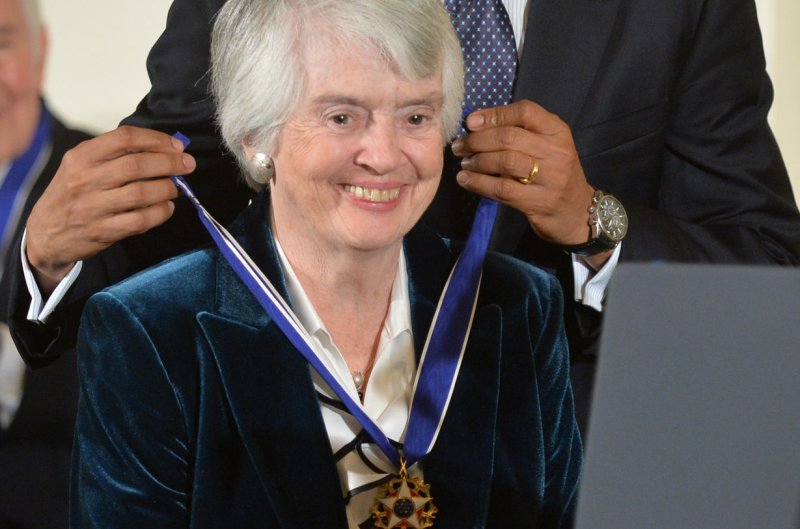President Barack Obama awards the Presidential Medal of Freedom to retired judge Patricia Wald at the White House on November 20, 2013. Wald died Saturday at her home in Washngton. UPI/Kevin Dietsch |
License Photo
Jan. 12 (UPI) -- Patricia Wald, who became the first woman to preside over the federal appeals court in the District of Columbia, died Saturday. She was 90.
Her daughter, Johanna Wald, told The New York Times she died at her home of pancreatic cancer.
In 2013, President Barack Obama awarded her the Presidential Medal of Freedom, as "one of the most respected appellate judges of her generation."
Fourteen years earlier, President Jimmy Carter appointed to the U.S. Court of Appeals for the District of Columbia Circuit, considered the second most influential court behind the Supreme Court. Later she was joined by Ruth Bader Ginsburg, who become a Supreme Court justice.
Wald served as the chief justice in the district from 1986 to 1991.
The first female chief judge of any federal court was Florence E. Allen, who was named a chief judge as a ceremonial tribute in 1958 just before she retired.
During her tenure as an appeals court judge, she wrote more than 800 opinions, most notably related to equal employment and education for women, LGBTQ individuals and those with disabilities. She was considered a liberal jurist, who viewed the law as achieving social progress, according to The Washington Post.
In 1993 as an appellate judge, she dissented in a 7-3 landmark case against a Naval Academy in 1993, which expelled a young male student because he was gay. Her three-judge panel had unanimously ruled in favor of the student but the Justice Department appealed to the full D.C. Circuit Court.
"You always have a sad feeling when you write a dissent because it means you lost," Wald said in a 1995 interview with a D.C. Bar Publication. "But you write them because you have faith that maybe they will play out at some time in the future, and because of the integrity you owe to yourself. There are times when you need to stand up and say, 'I can't be associated with this point of view.' That was certainly the way I felt in the gay midshipman case."
After retiring from the federal bench, Wald also was among 14 judges from 14 countries to serve on a war crimes tribunal after the genocide in former Yugoslavia. She wrote the landmark judgment, finding for the first time that the massacre of about 8,000 men and boys at Srebrenica constituted genocide
Wald, who was raised by a single mother, attended Yale Law School through a Pepsi-Cola fellowship. Three years earlier when starting law school in 1951, Harvard Law School didn't consider applications from women.
At Yale, she met, Robert Wald, and the two were married in 1952. He died in 2010.
She later first became pregnant but hid her condition while working at Arnold & Porter, then a small firm formed by a few of Washington's top lawyers.
"I was afraid they might say, 'You take your first woman associate and in three months, she's pregnant,' " she said.
In private practice, she accepted many pro bono and family law cases.
She became an assistant attorney general under Carter















